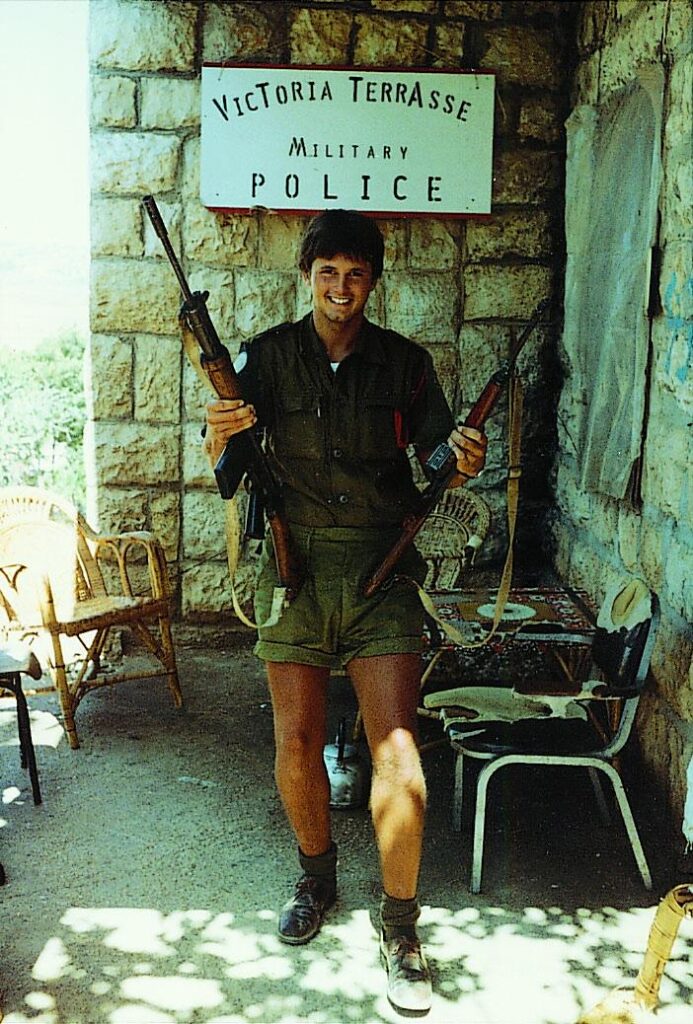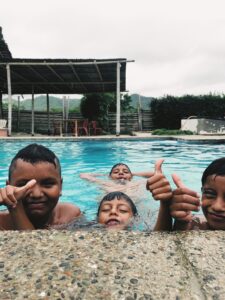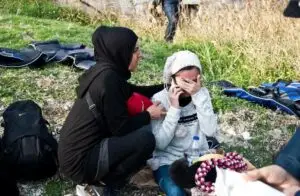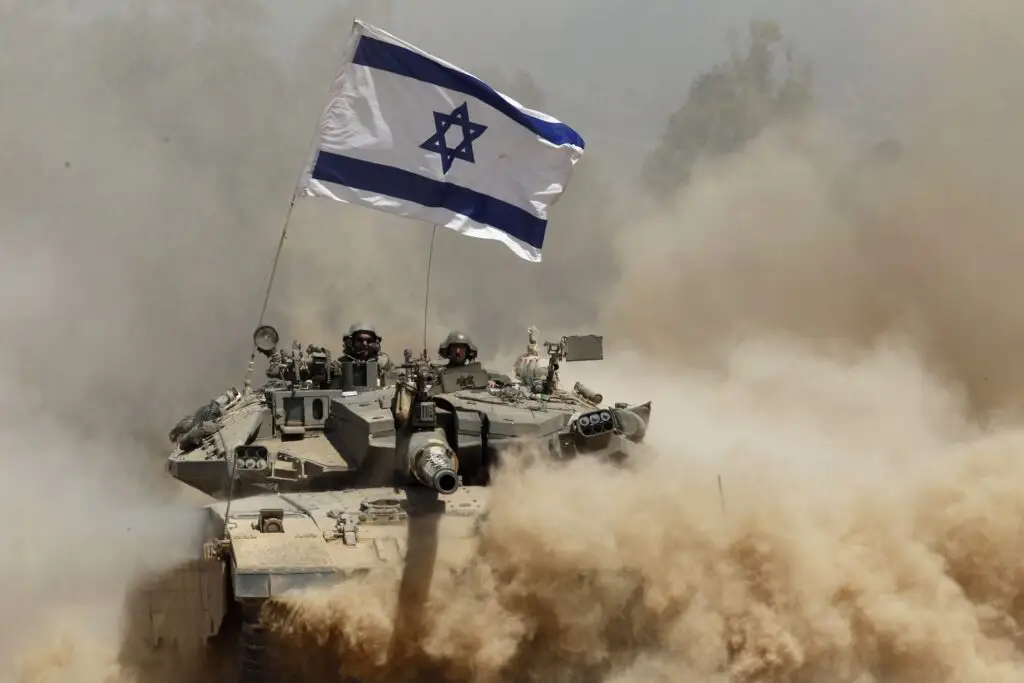Intersection outside Ebel Es Saqi
We had been out in AO to look at a “claim” – an insurance claim. Many of the residents demanded compensation for incidents they believed we or the Israelis were responsible for. A missing cow, a cement mixer that was stolen or a broken fence.
I inherited the cement mixer as a case from previous contingents. I remember investigating it for a couple of weeks, writing a report and passing the case on. But that’s a different story. The cow, on the other hand, was one of the cases we had to look into. For all we knew, the animal could stay with the neighbor.
We went out with a cameraman, a dog handler and a couple of drug dogs. Such trips were often used to check if there was cannabis smoking etc. at the outdoor positions. There was easy access to drugs, and the combination of hashish, 12.7 caliber machine guns and night-black landscapes, was not good.
… He pulled up the Magnum and put it against my head. …
Both Eines and I responded immediately. We knew that the civilians had been kidnapped and was on their way to El Kiam, Lebanon’s response to Abu Grahib. The fact that the Falangists did not bother to disguise themselves meant one thing: the prisoners should never return alive.
I still remember the faces of the old men on the truck plattform. A total fear. A fear of death that I had to spend almost thirty years understanding. They knew what awaited them.
The colonel was a short man, with a face marked by a long career in war zones. On the hip hung a heavy Magnum revolver. His saliva hit me in the face as he roared at me.
On the way back, after a lot of tea drinking and searching for old cows in old barns, we had reached the intersection at the entrance to Ebel Es Saqi. The intersection was divided into three. A road to the left towards the city of Saqi, a road straight ahead that led out of the AO over the blueline and into Haddadland, the area of the Falangists, and a nearly kilometer long hill that came down from the right.
At the top of the hill, around a bend and out of sight of us, lay what we called the Nest – a PLO camp that before the invasion housed about twenty young PLO soldiers. During the invasion, the Israelis killed everyone and used bulldozers to push the dead soldiers into their own trenches. Now there were only mounds of earth and an unmistakably sweet stench up there.
We noticed the cloud of dust from an Israeli truck coming down the hill towards us. For some reason, Eines decided to stop the car. We had no right to do so, but Eines liked to quarrel with the Israelis and at that time we did not need other reasons.
We stopped in the middle of the intersection and made it physically impossible for the Israeli truck to pass. To our surprise, eight Lebanese civilians were on the loading dock. Young boys, grown men and a couple of older men.
Between them sat the Falangist militia. Heavily armed with US carbines, handguns and grenades. The driver was an Israeli corporal and next to him sat an Israeli intelligence colonel. Everyone was unmasked. Israeli soldiers were almost never masked, but the phalangists wore balaklavas when they would not be recognized.
Eines ordered the dog handler out, and positioned them so that it prevented the truck from driving past. Then he asked the photographer to take pictures. None of the Israelis liked to be photographed and the Falangists hated it.
The balaklavas were put on again and the colonel was of course even more cursed. He pulled up the Magnum and put it against my head. I can still imagine the muzzle of the huge revolver. There is an incredible black hole where the bullet comes out.
I started talking. I told The colonel we were going to make a hell if the civilians were not back in the villages by the next day. I used a lot of words. The UN headquarters in Naqoura and the UN in New York – tossed around me with names and titles – without any basis for being able to threaten anything. But he did not know.
After a few minutes we let them drive on.
When we checked in the next day, the Lebanese civilians were back in their villages. Before they disappeared again. This time they fled. No one wins the lottery twice in a row.
I remember to this day the colonel’s dark eyes resting on me as they drove out of the intersection. In retrospect, I have often thought about how many such transports we did not discover.
I have often thought about how many such transports we did not discover.
You can download for free the whole book The Long Way Home here.


What is a lifetime, really?
Twenty good years? A good friend of mine once said while walking in the mountains of Gran Canaria.“Knut, we have twenty good years left. Use

How to protect yourself from your PTSD, when the world is on fire
(It is war. And it is mine. ) The headlines that meet me today are about the war in Ukraine. Alarms going off, people fleeing,

The thin film of civilization
The thin film of civilization This picture are taken on Lesvos. Her husband and baby drowned on the way over from Turkey. This is a

